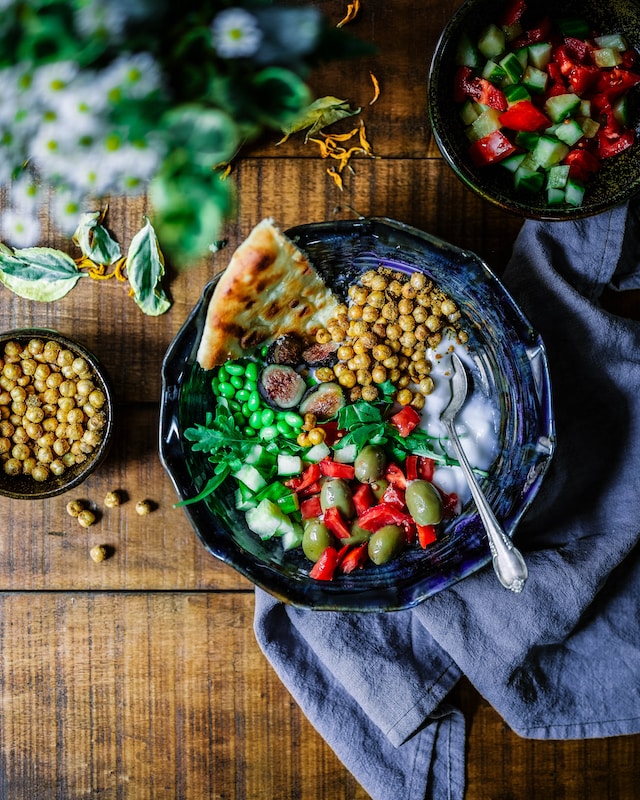Getting older doesn’t come with a handbook, but if there’s one chapter that deserves a spotlight, it’s the one on maintaining a balanced diet. This isn’t about fad diets or complex nutritional jargon; it’s about the everyday choices we make that can shape how we age.
Understanding how nutritional requirements evolve with age is essential for promoting optimal health and well-being in our senior years.
Being Aware of Decreased Caloric Needs
As we age, our metabolism tends to slow down, and our overall energy expenditure decreases. Consequently, our caloric needs may decrease. But don’t let that fool you into thinking you can survive on a few bites just about anything.
It’s not about more calories; it’s about better ones. Because you are eating less, the calories you will eat need to be beneficial to your body. Think of nutrient-packed foods that give you more bang for your buck. These are crucial in meeting the body’s changing requirements and will help you in your journey of healthy aging.
Eating to Maintaining Muscle Mass
Aging is often associated with a natural decline in muscle mass, known as sarcopenia. Adequate protein intake becomes crucial to help mitigate this loss and support overall muscle health.
Including lean protein sources in each meal is a key strategy for maintaining muscle mass. You might not be pumping iron like you did in your twenties, but that doesn’t mean your muscles don’t need some love. Get enough protein in your meals—chicken, fish, beans, and nuts are your muscle’s best buddies. It helps keep them strong and ready for action and helps with healthy aging.

Prioritize Hydration
Dehydration is a common concern among seniors and can contribute to various health issues. Aging bodies may have a reduced sensitivity to thirst, making it essential for seniors to consciously prioritize staying hydrated.
The simple act of staying hydrated can be a game-changer. It’s important to sip water throughout the day because dehydration can sneak up on you. If you find yourself forgetting to drink water, consider setting alarms every 20-30 minutes to remind you to have a drink of water.
It’s also a good idea to start skipping beverages that aren’t water, like soda, coffee, or alcoholic beverages, as many of these beverages actually dehydrate you more. Stick to water with an occasional cup of warm tea when you want something with flavor.
Remember, water is your body’s best friend, but it doesn’t have to come only from a glass. Add water-rich fruits and veggies to your diet, like watermelon and cucumber. Your body will thank you, from your skin to your joints to your brain.
Set up a routine for water breaks or infuse water with slices of fruits for a refreshing twist. Have 2 different BPA free colored water bottles for the am and pm to ensure adequate water intake throughout the day. Sistema water bottles are BPA-free and great for everyday use.
Hydration supports not only physical health but also cognitive function, contributing to overall well-being, and is an essential part of healthy aging.
Related: The Importance of Hydration
Additional Nutrients For Your Body
While we would love for you to be able to get all the nutrients for healthy aging from your diet, we know it isn’t always possible. So consider taking the following vitamins to help your body get what it needs.
Remember, not all vitamin brands are created equal. We recommend speaking to a doctor or health care professional to ensure you buy the best ones with the least additives.
Calcium and Vitamin D for Bone Health
Bone health becomes a paramount consideration as we age, with a higher risk of conditions like osteoporosis. Adequate calcium and vitamin D intake are crucial to support bone density and reduce the risk of fractures. Incorporating dairy products, leafy greens, and sunlight exposure are effective strategies as well as taking a supplement approved by your physician.
Vitamin B12
Time to shine the spotlight on vitamin B12. Aging can sometimes be associated with a decrease in the body’s ability to absorb vitamin B12, a nutrient crucial for nerve function.
Fish, meat, and fortified cereals are your go-to sources. Those following vegetarian or vegan diets may need to consider supplements or fortified foods to meet their B12 requirements after speaking with their healthcare provider.
Fiber for Digestive Health
Now, let’s talk about the unsung hero—fiber. This superhero can keep your digestive system moving. Even healthy aging can sometimes bring about changes in digestive function, making adequate fiber intake essential for maintaining digestive health. High-fiber foods like whole grains, fruits, and vegetables contribute to regular bowel movements and help prevent constipation.
Psyllium husk powder can be a natural way to ensure daily fiber intake. After consulting with a healthcare provider, you could consider including this in your morning routine. Just dissolve 1 or 2 tablespoons of this in an 8oz glass of water. This does thicken very quickly so you want to ensure you have enough water to drink the liquid easily.
Heart Healthy Fats
Prioritizing heart-healthy fats, such as those found in avocados, nuts, and olive oil, is crucial for seniors. These fats contribute to cardiovascular health, supporting overall heart function and helping manage cholesterol levels.
While these mostly need to come from your diet, vitamins like fish oil can help you get some of the healthy fats your body needs to stay healthy.

How Nutrition Helps in Managing Chronic Conditions
Many individuals deal with chronic health conditions such as diabetes, hypertension, or arthritis. Dietary modifications, such as monitoring carbohydrate intake for diabetics or reducing sodium for those with hypertension, play a significant role in managing these conditions.
You should consult with your healthcare provider before making any dietary changes to ensure you are making the right ones for your condition.
When it comes to personalized nutrition, the guidance of a healthcare professional or a registered dietitian can be invaluable. They can conduct assessments, consider individual health conditions, and tailor recommendations that align with unique needs. It’s like having a personalized roadmap to better health.
- Arthritis-Friendly Eating: For those dealing with arthritis, the right diet can make a noticeable difference. Incorporating anti-inflammatory foods like fatty fish, nuts, and colorful fruits and veggies can help manage symptoms. On the flip side, minimizing processed foods and potential trigger foods can provide relief.
- Kidney-Friendly Fare: Kidney issues call for special attention to phosphorus and potassium levels. This means being mindful of choices like low-phosphorus proteins, limiting high-potassium foods, and staying adequately hydrated. Customizing nutrition ensures that the kidneys are given the TLC they need.
- Diabetes and Diet Harmony: For those managing diabetes, the relationship with food becomes a delicate dance. It’s not about saying goodbye to your favorite flavors; it’s about finding balance. Monitoring carbohydrate intake, opting for whole grains, and embracing fiber-rich foods help manage blood sugar levels.
- Hypertension and the Sodium Puzzle : High blood pressure demands a closer look at sodium intake. The salt shaker isn’t the only culprit; processed foods can be full of sodium. Embracing a diet rich in potassium from fruits and veggies while reducing processed food consumption can be a game-changer for heart health.
Overall, navigating the world of nutrition doesn’t have to be overwhelming. It’s about making informed choices that suit your body’s changing needs.
Whether it’s maintaining muscle mass, focusing on key nutrients, or adapting to unique dietary requirements, a thoughtful approach to nutrition will help us stay healthy and vital in order to enjoy life to the fullest as we embrace the aging process.
For more information on managing health conditions with holistic resources, check out our article on mindfulness for well-being.


















